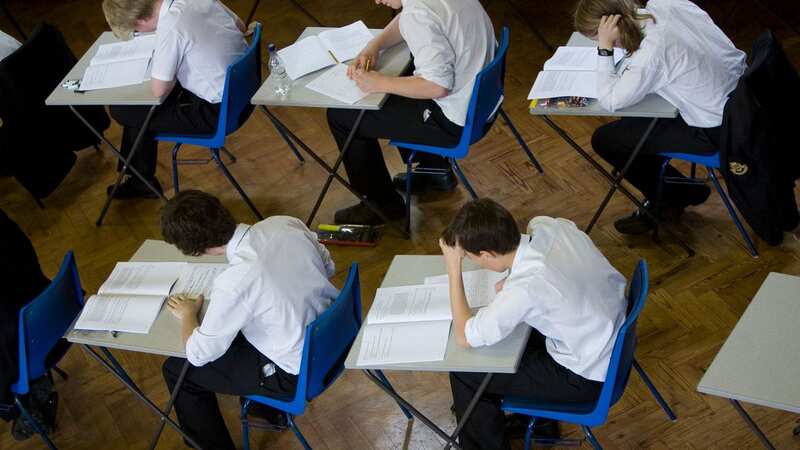Poorer children '18 months behind wealthier classmates when they leave school'

Poorer pupils are more than 18 months behind classmates from wealthier families by the end of high school, a report reveals today.
Gaps between disadvantaged children and youngsters from better-off backgrounds have worsened since 2019 under the last four years of Tory rule and the coronavirus pandemic. The Department for Education deems kids to be “disadvantaged” if they were eligible for free school meals at any time during the last six years or if they are in care.
Findings by the Education Policy Institute think tank lay bare the gulf separating school pals. Its study says: “At age five, disadvantaged pupils were 4.8 months behind their peers in 2022, a wider gap than in 2019 (4.2 months) and its highest level since 2014 (when it was 4.9 months). By the end of primary school, the disadvantage gap was 10.3 months – one month wider than in 2019 and higher than its 2012 level. This has reversed a sustained period of decreasing inequalities between 2011 and 2018. By the end of secondary school, disadvantaged pupils were over 18.8 months behind their peers. This gap has widened since 2019 (by 0.7 months) to reach its highest level since 2012.”
The think tank said “persistently disadvantaged pupils” were 12.2 months behind their “non-disadvantaged peers by the end of primary school and almost two years (22.7 months) behind by the end of secondary school”. Progress on bridging the divide had “already started to stall” before the Covid-19 pandemic triggered mass disruption to kids’ education, with schools closed for months and pupils forced to learn from home.
“We had seen signs of the gap starting to widen in the early years and secondary phases, but 2019 also saw worrying signs emerge in the primary phase,” says the report. “The pandemic then accelerated that trend and, between 2019 and 2022, we have seen the disadvantage gap widen across all phases of education. The attainment gap is even wider for persistently disadvantaged pupils (those eligible for free school meals for at least 80% of their time at school).”
 Teachers, civil servants and train drivers walk out in biggest strike in decade
Teachers, civil servants and train drivers walk out in biggest strike in decade
Analysts said that by the time pupils left secondary school, there were “particularly large disadvantage gaps” in Torbay, Devon; Hull, East Yorks; and Blackpool, Lancs. It highlighted how Hull and Blackpool “are also among the fifth most deprived local authorities in England”. Education Policy Institute chief executive Natalie Perera said the report highlighted the “striking and growing inequalities” faced by youngsters.
She added: “At every phase of education, the gap between children from disadvantaged backgrounds and their peers is widening “This report serves as a warning to all political parties that education and tackling inequalities must be a priority as we head towards a general election.”
Education Endowment Foundation chief executive Professor Becky Francis said the report “confirms that the link between family income and educational achievement has been further entrenched by the pandemic”. She added: “The findings of today’s report should reaffirm our collective mission to reduce education inequality, at every stage of the education system and on a local, regional, and national level.”
National Education Union general secretary Daniel Kebede said: "Thirteen years of Conservative rule equate to 13 disastrous years in education policy. A culture of short-termism and short-sightedness, much of it driven by an unwillingness to listen to the profession, has taken a significant toll on the prospects for young people who have grown up during this era. Education should be about levelling the playing field for every child regardless of their background to ensure they get an equal chance in life. Yet as this report from the EPI clearly shows, the situation for students from disadvantaged backgrounds is worsening, and the decimation of services makes the dream of a level playing field all the more distant.”
A Department for Education spokeswoman said: “Despite the impact of the pandemic, we are taking the long-term decisions to improve our education system for generations to come, including the new Advanced British Standard which will see every student in England study some form of maths and English to age 18. Just this month, England was ranked 11th in the world for maths, up from 27th in 2009, and in May we were named ‘best in the West’ for primary reading out of a comparable 43 countries.
"We have made £5billion available since 2020 for education recovery initiatives, with almost half of pupils receiving tutoring up until January 2023 having been in receipt of free school meals - meaning tutoring is reaching some of the most disadvantaged children in the country. Recognising the vital role FE (further education) colleges play in helping to close the attainment gap, in October we announced an additional £300million to support students who do not pass their maths and English GCSE, to help them gain these fundamentals.”
Read more similar news:
Comments:
comments powered by Disqus

































